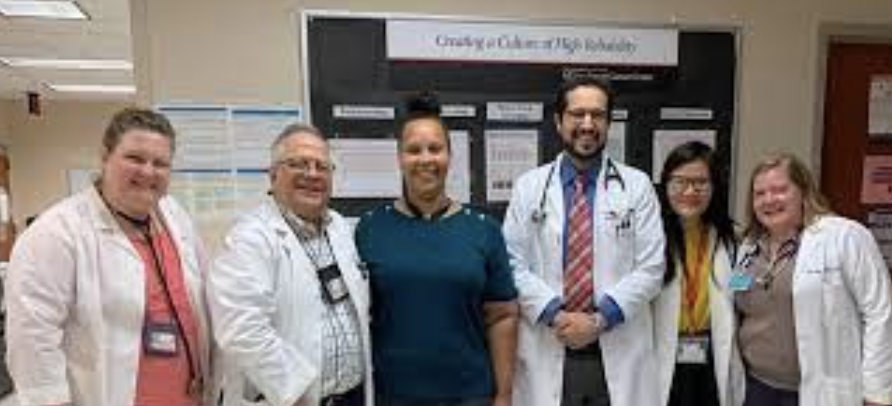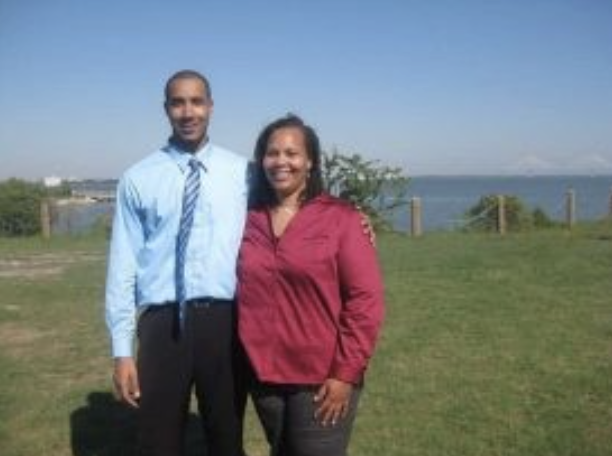Making Renal Medullary Carcinoma (RMC) Invisible No More
Kidney cancer changed my life forever when my brother Herman, was diagnosed with a rare and aggressive form called renal medullary carcinoma (RMC) in April 2012. Months leading up to his diagnosis he was experiencing bad back pain and it wasn’t until he found blood in his urine that he knew something wasn’t right and went to the emergency department. That’s where they did an x-ray and told him he had a mass that was consistent with kidney cancer but he needed to follow up with a urologist to get a definitive diagnosis. Herman had begun searching the internet and found Dr. Nizar Tannir who told him chemo was the first step. Herman’s local oncologist told him that chemo was not an option. In fact, I’ll never forget the day our local oncologist looked at him and my mom telling him there was nothing they could do for him. It felt like my soul left my body. I couldn’t think and just broke down and cried. I refused to believe my brother was going to die. The very next morning we drove 17 hours to Houston, Texas and that’s when our fight began; traveling back and forth to Texas every two weeks for my brother’s treatment and doctor’s appointments. Some days he was very sick and not up to the 2 hour and 30-minute flight, but we have to say it was all worth it because today he is a survivor. Not only is he a survivor, but he has remained cancer free for almost seven years! We believe God intervened and placed us exactly where we were meant to be from the start and worked through the doctor’s there because when you read the statistics, he shouldn’t be here but as I’ve learned, despite your diagnosis, there is always hope beyond what you see.

To have a center of excellence like MD Anderson accept Herman in such a desperate time of need was a blessing. And while Herman’s story brings hope to those diagnosed with RMC, the statistics are still sobering. This is why I established RMC Support, a foundation dedicated to renal medullary carcinoma in 2013. Early detection is critical and can play an important role in the outcome of patient survival. I never imagined I would have been in contact with so many people from all over the world. I remember the feeling of hopelessness and I didn’t want anyone to experience what we did, which is why I created a social media platform where others can get connected and know that they are not alone in this fight.
Through this community we launched a petition in 2016 gaining over 6,800 signatures asking the President to help ensure that individuals who carry sickle cell trait will be screened. We also created a registry for doctors to analyze information about people with renal medullary carcinoma. The goal is to gather info that can be used to estimate the number of cases of RMC each year, estimate the number of people with RMC at a specific point in time, better understand who gets RMC and what factors affect the disease, examine the connection between RMC and those who carry the sickle cell trait and improve RMC treatment. One of our greatest strides thus far was helping enact a bill in the State of South Carolina, which ensures parents of newborns born with sickle cell disease or trait receive educational information on sickle cell disease and trait associated complications.
As RMC Network Manager at the Patient Empowerment Network, I have also helped launch the RMC Invisible No More Campaign. Raising awareness never stops. We hope to encourage those who are unknowledgeable about RMC to become knowledgeable and see how it is hurting certain communities. Through this campaign, we’d like to reach those who are living with probable sickle cell disease and/or trait, but are unaware of their status. Knowing your status is knowing your risk. Pattern.org is also highlighted throughout this campaign which is a big driver in rare cancer research. Pattern allows cancer patients to send in tumor tissue samples to be studied.

One of the most significant things my brother’s cancer journey has brought me to has been meeting so many incredible people from all different walks of life. I feel incredibly blessed to be able to provide some source of hope and encouragement to patients, their families and loved ones. Herman is an inspiration to many, and I believe God has used him as a vessel to show other’s there is hope!
No matter how rare a disease may be when we come together, we can make our voices heard. Never forget, you are your biggest advocate and all things are possible!
Cora Connor founded R.M.C. (renal medullary carcinoma) Inc. to educate the public and healthcare professionals while enhancing the lives of individuals fighting a rare kidney cancer, renal medullary carcinoma (RMC.) Cora’s advocacy started after her brother Herman, was diagnosed in early 2012. Eight years following Herman’s battle with RMC, he is alive and well. From speaking with her state Senator to later having a bill passed in South Carolina ensuring that parents receive risk associated sickle cell disease educational information to lobbing for cancer research in Washington, DC, Cora continues to advocate tirelessly. Cora lives in Charleston, SC, and is the mother to three boys. She is honored to serve as the Renal Medullary Carcinoma Network Manager for the Patient Empowerment Network.



